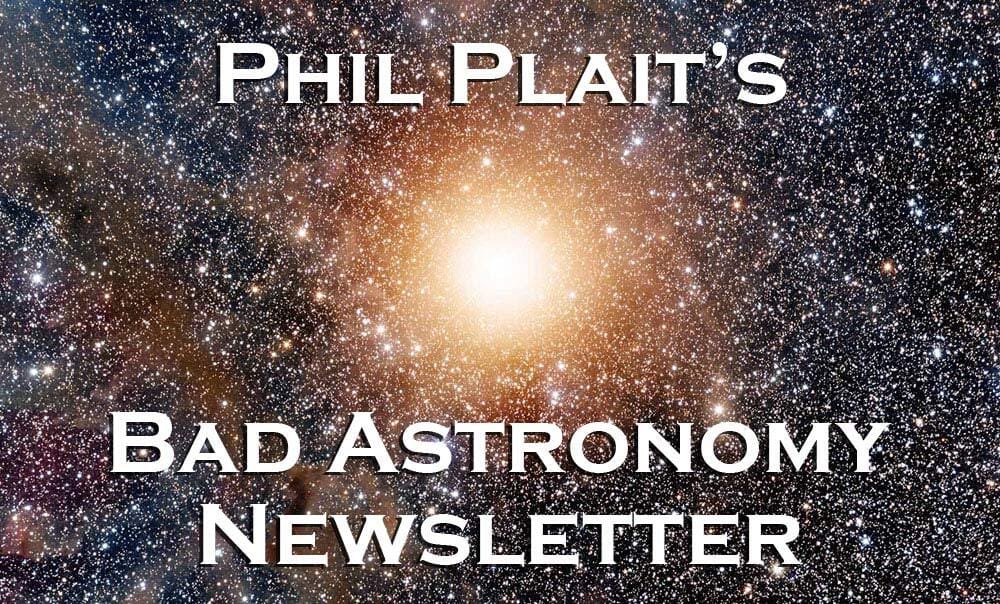- Bad Astronomy Newsletter
- Posts
- Goodbye, Meta. Also, a first planetary discovery for JWST
Goodbye, Meta. Also, a first planetary discovery for JWST
Waving bye-bye to Zuck’s domain, and a new (to us) planet is tugging on others in its system
April 29, 2025 Issue #871
I’m gone from Meta now, too
I finally meta man I didn’t like
In what turned out to be an easy (though painful) decision, I will no longer be using the social media Threads or Instagram. Both are owned by Meta, Mark Zuckerberg’s company.
It was easy because I quit Facebook years ago, after Zuckerberg twisted it into a garbage site where people who create things (artists, writers, or even just people chatting) were throttled back on their reach, and then extorted to pay money to extend it. I also recently quite Xitter because Musk is a braying right-wing ass who screwed up Twitter so much it’s now just a haven for Nazis and conspiracy theorists. He’s also been let loose in the US government, as you might have heard, which in my opinion and that of others is unconstitutional and likely highly illegal.
So, I have practice leaving the frog-boiling pot. But it’s painful because I like Instagram, and I have a lot of friends whom I mainly contacted through it. I liked posting my pix and videos to Instagram, and I had a lot of people who followed me there.
But for me, I have to do it. Zuckerberg had changed the rules at Meta once again, this time to allow people to attack women and LGBTQ+ folks, all in the name of “free speech”, even though on the other side of his mouth he’s saying he’s removing fact checkers because they’re biased.
That, absolutely obviously, is BS. The problem is that studies have shown people with right-wing ideology spread misinformation and lies at rates far, far higher than on the left. It’s not that fact checkers are biased, it’s simply that they have to do more work reining in the lies from the right. Zuckerberg curtailing fact checking (and relying on the less reliable “community notes” like Xitter now does) is a clear sign he’s not about free speech at all, but about amplifying right-wing voices. Again, this isn’t just my opinion; the facts make this pretty clear. I could go on further about dubious decisions made by Meta, especially this one which is infuriating, but just this “free speech” claim is enough for me.
So I’m out. At first I left my Instagram account up but inactive, but then decided to hell with it (and him). I deleted it. My first post was in 2014 (a photo of Hank Green I took when I was working him and his group to make an episode of SciShow), so this wasn’t a decision made lightly. A lot of big events in my life were catalogued there. I downloaded the archive and still have the posts, but still. It’s upsetting.
So, for now, the only social medium I’m active on is Bluesky (and to a much lesser extent Mastodon and, for the moment, TikTok).
This sucks, and I hate hate hate how a handful of social media companies owned by a handful of misanthropic oligarchs own nearly everything we say and do online (my friend John has words on this, as does my other friend Wil). For now Bluesky is a haven, free and open and (if you want it to be) algorithmless, so I’m happy there. But I’ve learned my lesson, and I’m keeping a jaundiced eye on it as well.
The good news is I own this newsletter, so I’m able to write what I want. It’s not a social medium by any means, but at least it’s an independent way for me to make my voice heard. And please feel free to tell others about it. I’m always happy to have more eyeballs.
A new planet found in JWST data. Kinda.
A missed date led to a found planet

Artwork of the Kepler-51 planetary system. Credit: NASA, ESA, and L. Hustak, J. Olmsted, D. Player and F. Summers (STScI)
Kepler-51 is a star about 2,600 light-years from us. It’s similar to the Sun in size and mass, but far younger; only about 500 million years old. It has three known planets that orbit close in, making them hotter than Earth. They’re more massive than Earth, from 3.7 to 5.6 times our planet’s heft, but they’re also much bigger in size, 6 - 9 times our diameter. This makes them “puffballs”, planets with extremely inflated atmospheres, likely due to getting blasted by their host star. The heat inflates the gas, expanding the atmospheres.
However, it’s unclear why the atmospheres are as extended as they are; theory says they shouldn’t be that puffy. So astronomers decided to observe the outermost planet, Kepler-51d, with JWST, hoping that infrared observations would give them clues about what’s going on.

Subscribe to Premium to read the rest.
Become a paying subscriber of Premium to get access to this post and other subscriber-only content.
Already a paying subscriber? Sign In.
A subscription gets you:
- • Three (3!) issues per week, not just one
- • Full access to the BAN archives
- • Leave comment on articles (ask questions, talk to other subscribers, etc.)


Reply